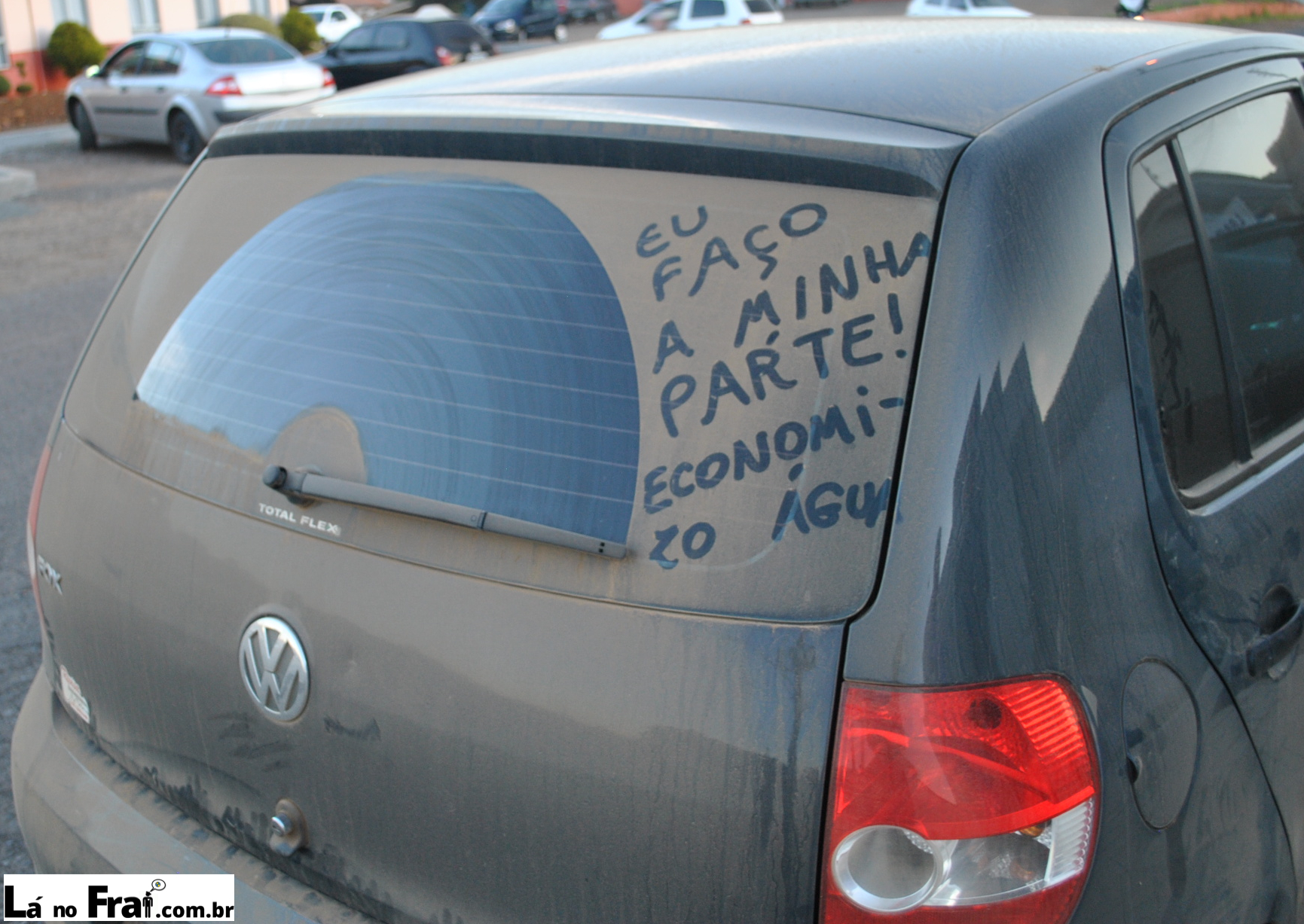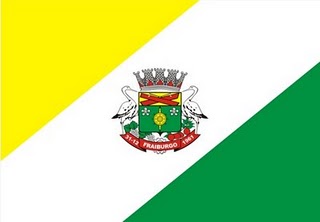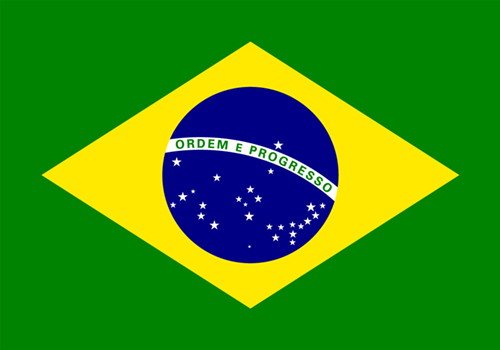Tag Archives: Fraiburguese
Seca no Frai / Fraiburgo’s drought problem
Nesses últimos dias Fraiburgo está linda, as árvores coloridas e as temperaturas agradáveis (por lo menos por enquanto). Abaixo está o carro de um tchô comprometido com os pedidos da comunidade para evitar o esbanjamento de água (desperdício). Não pude deixar de compartilhar. Antes da foto a frase tinha um errinho de Fraiburguês na palavra “PARTE”, faltava o acento agudo no “R”. Agora, olhando com mais calma notei que ainda está faltando um acento circunflexo “^”. O Fraiburguês culto, foneticamente falando, permite que algumas palavras tenham duas silabas tônicas como em “paRtê – “quaNtÔ” – “verdAdÊ” e assim por diante. Piazada, vamos cuidar dos desperdícios! Chega de tomá banho hehe opa, nem taNtô!
Those days we have had amazingly beautiful days in Fraiburgo, however this is coming at high costs. The city is now facing drought problem. In this way, people have are becoming aware of their own water consumption. Hence I took this pic which says that “I am taking part on the campaign to avoid expending water for cleaning it”.
Fraiburguese verbs
In the last hundred years the Indo-European languages have been continuously systematized to reduce the learning curve, to evolve, and, of course, to survive amongst other languages. The verbs exist in a language to indicate an action or a state of being and they were also systematized. Below there are some examples of this:
- In Portuguese and Spanish the infinitive verbs end with “AR” “ER” “IR” “OR”. E.g. To love – Amar, To speak – Hablar or Falar, To compose – compor the list goes on.
- In Italian you can take the same rule of Portuguese and add the letter “E” at the end. E.g. To love – Amare. Many verbs are similar to Spanish and Portuguese, but not all.
- In English the infinitive is “TO”- To love, to speak, to break and so forth.
- Germanic languages have “EN” at the end. In Dutch for instance “to walk” is “lopen”, to eat “eten”, to sleep “slapen”.
So how would that be infinitive verb in Fraiburgo? As far as I know, I have the feeling that we tend to take the final “R” out and transform it into an accent in the last syllable stressing it, which we pronounce in a very open way. E.g.
- To walk – Caminhar = Caminhá
- To speak – Falar = Falá
- To exchange – Trocar = Trocá
Furthermore, other strange things usually happen in the sentences created in Fraiburgo. Herein I will stick to the verbs only. In the next posts you will start noticing the emergence of these dialect patterns. Little by little you will get acquainted with the Fraiburguese dialect. I hope you enjoy and most importantly I hope you understand what I am saying… it’s been a challenge to do so but fun at the same time.
*Fonte/Source “lanofrai.wordpress.com” and colaborators
The Fraiburguese Dialect 01
In the last 100 years, the region where Fraiburgo is located has witnessed people communicating in at least six languages (Portuguese, Italian, German, Polish, French and Tupi-Guarani). Nowadays what we have is a consolidation of the Portuguese with an increasing English influence. Portuguese is similar to Spanish, which is a kind of Portuguese with a funny Maradona accent and a different grammar hehe.
In Fraiburgo the official language is Portuguese however, every time I visit the city I have some reverse cultural shocks regarding to the language when I hear my own dialect, which is funny. In fact, there is a huge gap between the official Brazilian Portuguese and what they speak there (Fraiburguese). This post is an attempt to show a bit some characteristics of our dialect. If you know some Spanish you might be able to read some of our words. If you don’t, it is still interesting to see that many Portuguese words are virtually the same as English because of their Latin base (See around the blog).
Observations
- The Fraiburguese dictionary that is being developed is composed of words and expressions that take place randomly without any sort of classification just as it happens in the reality of an average person from Fraiburgo.
- The Fraiburguese dialect is shared amogst other cities in the southern region, however, there might exist expressions that are well understood nation-wide. Only with evolution of this project we will be able to spot what is exclusively from Fraiburgo.
- In Fraiburgo we drink the traditional mate “Chimarrão”, which is predominantly from the Gaucho culture, nonetheless the accent is not similar to gaucho accent.
- Fraiburgo, likewise the rest of the country, has several social classes and races which generates a great degree of vocabulary variation.
- This blog will always be a subject of changes and grammar improvements.




